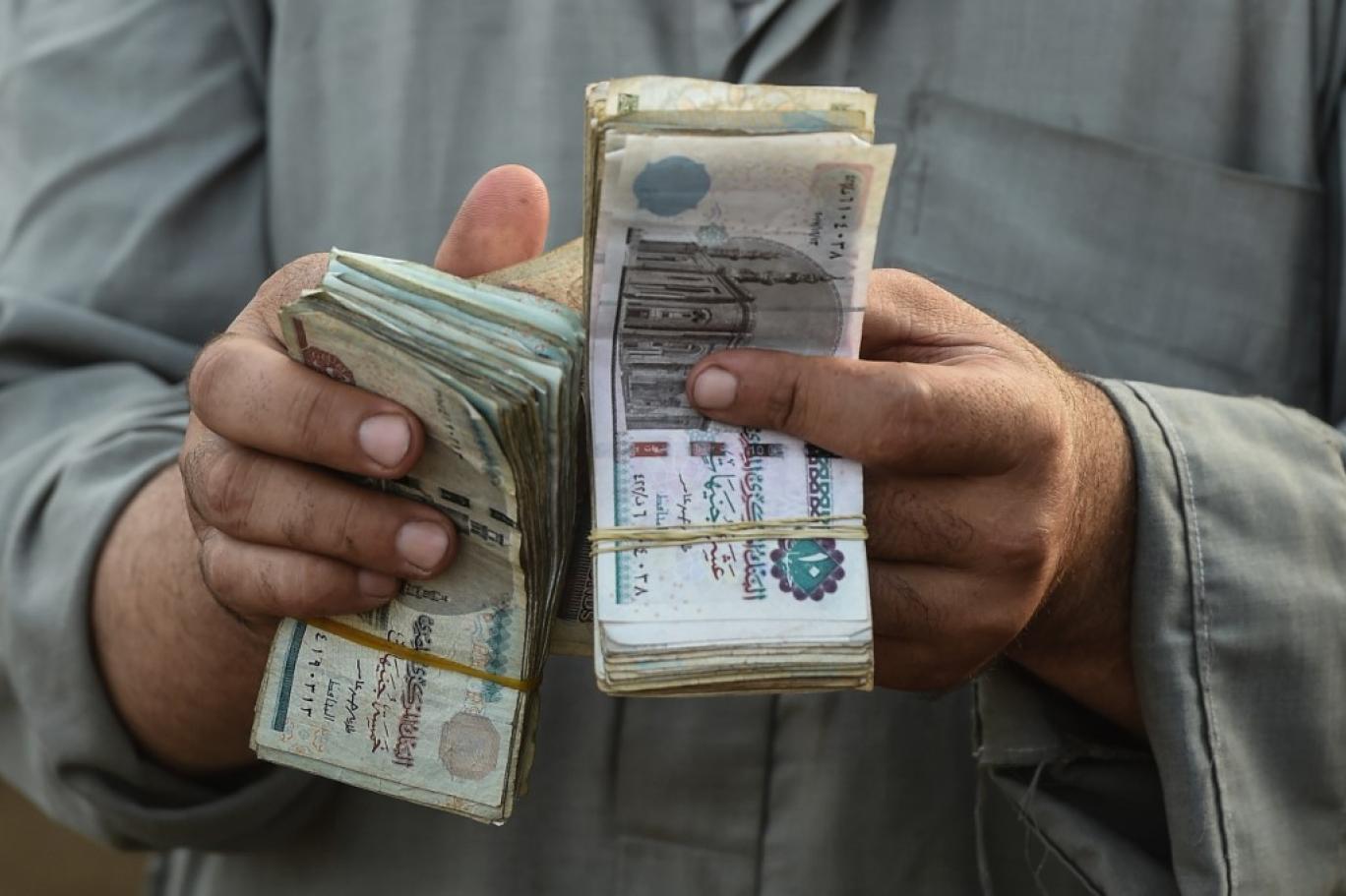How Will a Potential Regional War Affect Egypt’s Economy?

Egypt, despite not being a direct participant in the conflict, is closely monitoring the regional situation with growing concern.
The Middle East region is currently experiencing an extraordinary level of tension, marked by a series of high-stakes events that have reverberated across the Middle East.
The most disturbing tension is the Israeli aggression in Gaza, widely condemned for the significant loss of life, and the assassination of Hezbollah leader Fouad Shukr during an Israeli raid in Beirut.
This was followed by the targeted killing of Hamas political bureau chief Ismail Haniyeh in Tehran, a bold and provocative strike at the heart of Iran.
Compounding these developments, the Israeli air force launched a series of intense airstrikes on Hodeidah, a stronghold of the Houthi movement in Yemen.
These incidents have set the stage for a potential escalation, with all parties involved threatening severe retaliatory measures.
Vulnerable Economy
Egypt, despite not being a direct participant in the conflict, is closely monitoring the situation with growing concern.
The country, which boasts the region's largest population, is acutely aware of the potential non-military repercussions of the conflict.
Egypt's economy, already vulnerable, could face severe disruptions similar to those experienced during the Russian-Ukrainian war, which exposed the fragility of its economic infrastructure.
The operation launched by Palestinian resistance factions against the Israeli occupation on October 7 has exposed a critical vulnerability in Egypt's energy security: its heavy reliance on natural gas supplies sourced from Palestinian territories under Israeli control.
As the Israeli aggression on Gaza escalated, the Israeli occupation announced a halt in gas exports to Egypt, citing safety concerns, which quickly triggered a severe energy crisis.
This disruption led to prolonged power outages across the country, forcing the government to reduce gas allocations to key industries such as fertilizer and cement production, thereby stalling economic output.
Although gas imports resumed in November, gradually stabilizing to previous levels, the situation reached a boiling point by late June.
Amid a sweltering summer and mounting public anger over frequent power cuts, Prime Minister Mostafa Madbouly convened a press conference to explain the crisis.
Political researcher Basel Reda pointed out that this revelation marked a stark contrast to the government's previous narrative, which framed Israeli gas imports as primarily for liquefaction and re-export to generate foreign currency.
“With regional tensions escalating anticipating Iran’s offensive, the prospect of the Israeli occupation once again suspending gas supplies looms large, whether due to internal challenges, political motivations to exert pressure on Egypt, or external factors beyond its control, such as the potential targeting of its gas fields in military strikes,” Reda told Al-Estiklal.
This risk was underscored when Hezbollah released a nine-and-a-half-minute video showcasing aerial reconnaissance of sensitive Israeli sites, including gas platforms in the Mediterranean.
Further complicating the situation is the global context. According to Reda, if the current military conflict escalates into a full-blown war involving Israel, Iran, or other regional players, oil prices could soar to unprecedented levels, potentially reaching $150 per barrel. The crisis could deepen if Iran were to close the Strait of Hormuz, a crucial artery for the world’s oil supply.
Egypt, which imports approximately 100 million barrels of oil annually at a cost of $12 billion, would face severe economic strain under such conditions.
Even with stable global prices, the financial burden is significant; any spike in oil prices would only amplify the pressures on the already fragile Egyptian economy.
“Faced with dwindling foreign currency reserves, the government may be compelled to pass these costs onto citizens by further lifting fuel subsidies, a move that would inevitably drive up the prices of goods and intensify the economic hardship experienced by the Egyptian people,” Reda said.

Suez Canal
The events have had significant repercussions for Egypt’s Suez Canal, a critical artery of global trade and a major source of foreign currency for the Egyptian economy.
The canal's revenues have been sharply impacted, largely due to attacks by Yemen’s Houthi group on ships bound for the Israeli occupation’s port of Eilat in the Red Sea. These attacks have prompted many vessels to reroute via the Cape of Good Hope, bypassing the Suez Canal entirely.
The International Monetary Fund estimates that shipping volumes through the Suez Canal decreased by two-thirds in April compared to the same period last year.
Egypt’s Planning Minister, Hala El-Saeed, confirmed that revenues from the canal have declined by 50% as a result of the ongoing tensions in the Red Sea.
This downturn is particularly alarming for Egypt, which relies heavily on the canal as one of its most vital sources of foreign currency.
In the fiscal year 2022/2023, the canal generated approximately $9.4 billion, but revenues have dropped to $7.2 billion in the current fiscal year.
The threat posed by the Houthis is far from over. They have vowed to intensify their operations in retaliation for the Israeli attacks on Hodeidah, a key city in Yemen.
Experts anticipate that these actions will be coordinated with Iran and other members of the resistance axis, suggesting that the Red Sea could remain a hotspot for conflict.
This ongoing unrest is likely to further diminish the number of ships passing through the Suez Canal, exacerbating the crisis and prolonging the revenue losses that are vital to Egypt's already strained economy.
The potential expansion of the conflict into the Mediterranean Sea presents an even greater threat.
“With most of Egypt's ports situated along the Mediterranean coast, any restrictions on maritime movement could severely disrupt trade and supply chains,” Reda noted.
He added that such disruptions would not only raise transportation and shipping costs but also impact Egyptian imports and exports, leading to production slowdowns and driving up prices for goods in the domestic market.

Hot Money
Since 2016, Egypt has increasingly relied on hot money—short-term investments in government debt—to meet its financial needs.
These volatile funds, known for their quick entry and exit from markets, are highly sensitive to any sign of risk.
The 2022 Russian-Ukrainian war triggered an exodus of about $25 billion in such investments from Egypt, plunging the country into one of its worst economic crises in decades.
The Egyptian pound began a steep decline, only partially stabilized by substantial financial injections from the Gulf and Europe.
Despite these past upheavals, the Egyptian government has recently resumed its reliance on hot money.
Foreign investments in government debt instruments surged by $19 billion in just one month, reaching approximately $31 billion in March 2024, up from $12.8 billion at the end of December 2023.
By the end of April, these investments had climbed further, exceeding $35 billion, according to Central Bank data.
“The assassination of Hamas’s leader in Tehran and Iran’s subsequent threats of retaliation have spurred a fresh wave of foreign withdrawals from Egyptian treasury bills,” Reda mentioned.
Between July 28 and August 8, more than 122 billion Egyptian pounds were pulled out by foreign investors. These investors typically convert their funds into Egyptian pounds to buy treasury bills, with the Central Bank guaranteeing their ability to reconvert profits into dollars.
This practice, though profitable, risks exacerbating Egypt's foreign currency shortage.
In a statement on August 8, following the news of these withdrawals, Egyptian Prime Minister Mostafa Madbouly acknowledged the mounting pressures from regional geopolitical tensions.
He expressed concern over the potential expansion of the conflict, noting, “No one knows what will happen tomorrow in light of the tensions, the possible reactions, and the repercussions of that on the region.”
Fitch Solutions has warned that the Egyptian pound could face further depreciation against the dollar through the remainder of 2024 if these geopolitical tensions persist.












